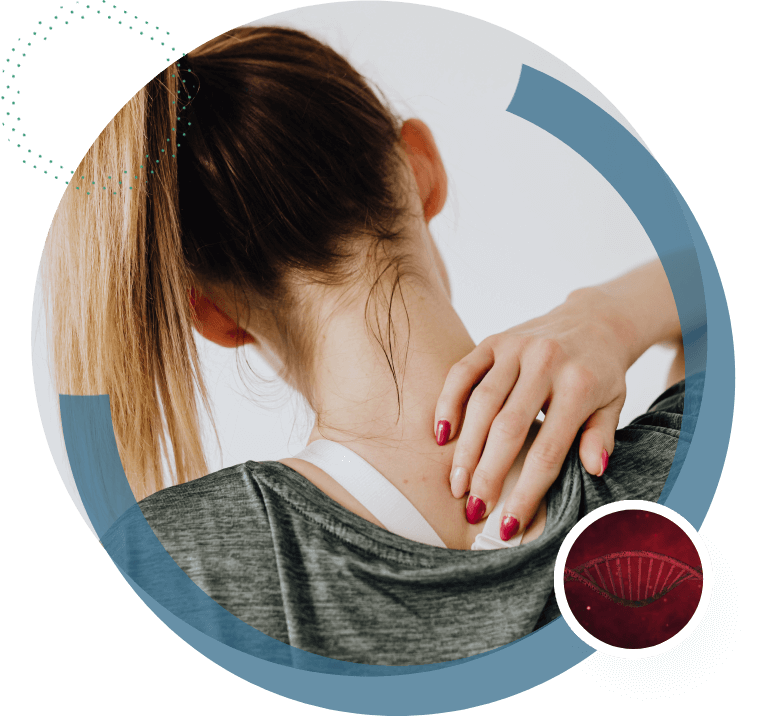
Frozen Shoulder Treatment in San Diego, CA
Patients with frozen shoulders will feel shoulder pain and joint stiffness due to restricted joint capsule movement caused by inflammation and the development of scar tissue within the shoulder. For more information about treating this condition, schedule an appointment with Dr. DuBois to discuss the available conservative and surgical treatment options.
Frozen shoulder, also known as adhesive capsulitis, is a musculoskeletal condition that causes pain and reduces the upper arm's range of motion. This condition is caused by a restricted joint capsule, which is a set of ligaments that surround the shoulder joint and keep the bones in place. Most cases are idiopathic, although a frozen shoulder can occur related to trauma or prior surgery...
Shoulder Anatomy
As a ball-and-socket joint, the shoulder enjoys a wide range of motion through rotation of the upper arm. The main shoulder joint, known as the "glenohumeral joint," is comprised of the humerus (upper arm bone) and the scapula (shoulder blade). The rounded head of the humerus fits within a shallow socket on the scapula called the glenoid fossa. A set of strong connective ligaments (called the shoulder capsule) surrounds the ball-and-socket joint and helps hold the bones together in the proper position.
In patients with adhesive capsulitis, the joint capsule's movement becomes restricted, causing pain while limiting the shoulder's range of motion. The shoulder may develop increased pain with additional use, which makes sleeping uncomfortable and makes activities of daily living difficult.
As the joint capsule becomes restricted, movement becomes more and more painful. The joint capsule develops scar tissue, further restricting the movement of ligaments and increasing the associated pain. The condition can be a result of previous shoulder injuries. However, most cases are idiopathic in nature.
Diagnosing Frozen Shoulder
By measuring the patient's range of motion compared to the other shoulder, Dr. DuBois can diagnose a frozen shoulder during an examination. Additional imaging, such as an X-ray and MRI (magnetic resonance imaging) scan, may be necessary to rule out other conditions.
Treatment for Frozen Shoulder: Conservative Options
Treatments for frozen shoulder usually involve a variety of different conservative treatments, including physical therapy, cortisone or PRP injections, and anti-inflammatory medications. Many patients can find dramatic improvement with conservative treatments.

Arthroscopy for Frozen Shoulder
In some cases, adhesive capsulitis may be resistant to the conservative treatments described above. In these cases, patients may benefit from arthroscopic surgery to remove scar tissue and inflammation that has built up inside the shoulder. This procedure releases and removes the stiffened joint capsule, restoring the shoulder's range of motion. Arthroscopy is minimally invasive and uses fiber optics to reduce the amount of muscle and tissue damage during surgery.
During an arthroscopic procedure, the surgeon will first make a small incision to insert the arthroscope, a small fiber-optic camera that sends real-time images to a monitor in the operating room. Through a second incision on the shoulder, the surgeon will insert the operating instruments, roughly pencil-sized, to perform the joint capsule release. Though recovery times vary, some patients may complete rehabilitation within six weeks.
Arthroscopy usually affords for the same benefits to patients as minimally invasive surgery, which can include:
San Diego Frozen Shoulder Treatment
Dr. Benjamin DuBois is one of San Diego's leading shoulder surgeons, dedicated to treating shoulder disorders in a comfortable and safe environment. As a board-certified and fellowship-trained orthopedic surgeon, Dr. DuBois has extensive experience performing minimally invasive surgical procedures, including arthroscopic surgery, to treat conditions including frozen shoulder, rotator cuff damage, and shoulder labrum tears. For more information about treatment options for a frozen shoulder, schedule an appointment to speak with Dr. DuBois at his La Mesa office.